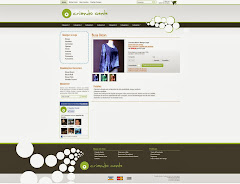Você sabia que amamentar seu filho por mais tempo fará dele um adulto bem sucedido financeiramente no futuro?!
Saiu ontem no site da revista inglesa hiper respeitada, The Economist, uma matéria relatando sobre um estudo de um médico brasileiro da Uni Federal de Pelotas mostrando que as crianças que são amamentadas por mais tempo têm um QI mais alto e renda maior na idade adulta.
Uma pesquisa da Universidade Federal de Pelotas, com 3,5 mil recém-nascidos, mostra que crianças amamentadas por mais de um ano têm escolaridade 10% superior àquelas que não completaram um mês de alimentação com leite materno. O efeito sobre a renda foi o mesmo. Crianças com maior período de amamentação tornaram-se adultos com renda 33% superior a dos que não receberam leite materno por mais de 30 dias.
O grupo de pesquisa acompanhou dados de crianças nascidas em 1982 na cidade gaúcha de Pelotas. O banco de dados trazia inicialmente informações de 6 mil participantes. Os voluntários fizeram ao longo dos anos quatro avaliações de grande porte. Na última, com indivíduos já com 30 anos, além de testes de QI, foram incluídas questões sobre renda e escolaridade. Foram avaliados nesta etapa dados de 3.493 participantes. "Tomamos o cuidado de expurgar qualquer fator social que pudesse influenciar nesses resultados", contou Bernardo Hortas, médico responsável pela pesquisa.
Ele ressaltou que na amostra avaliada o aleitamento materno esteve presente em todas as classes sociais. "Estudos em países desenvolvidos muitas vezes são criticados por não conseguirem separar de forma socioeconômica; nosso estudo faz isso pela primeira vez."
Os pesquisadores dividiram os voluntários em cinco grupos, de acordo com a duração do aleitamento. "Os resultados indicam que, quanto mais longa a amamentação, melhor a renda, a escolaridade e a inteligência". A variação na escala de QI é de três pontos da média.
Os pesquisadores atribuem os resultados a uma combinação de fatores.
Um dos mecanismos que provavelmente exercem grande influência no maior desenvolvimento da inteligência é a presença de ácidos graxos saturados de cadeia longa no leite materno. "É essencial para o desenvolvimento dos neurônios", disse Hortas. Mas há outros pontos importantes. "O vínculo entre mãe e a criança é fortalecido durante a amamentação. Isso deve ser levado em conta", completou e ressalta a necessidade de se avaliar o impacto do leite materno na ativação de genes.
Presidente do Departamento de Aleitamento Materno da Sociedade Brasileira de Pediatria, Luciano Borges Santiago disse que já havia indícios dos benefícios da amamentação para o desenvolvimento intelectual. "Amamentar faz diferença na inteligência. Isso é um dado a mais que vem para fortalecer as vantagens do leite materno."
Veja só o texto original em Inglês:
O grupo de pesquisa acompanhou dados de crianças nascidas em 1982 na cidade gaúcha de Pelotas. O banco de dados trazia inicialmente informações de 6 mil participantes. Os voluntários fizeram ao longo dos anos quatro avaliações de grande porte. Na última, com indivíduos já com 30 anos, além de testes de QI, foram incluídas questões sobre renda e escolaridade. Foram avaliados nesta etapa dados de 3.493 participantes. "Tomamos o cuidado de expurgar qualquer fator social que pudesse influenciar nesses resultados", contou Bernardo Hortas, médico responsável pela pesquisa.
Ele ressaltou que na amostra avaliada o aleitamento materno esteve presente em todas as classes sociais. "Estudos em países desenvolvidos muitas vezes são criticados por não conseguirem separar de forma socioeconômica; nosso estudo faz isso pela primeira vez."
Os pesquisadores dividiram os voluntários em cinco grupos, de acordo com a duração do aleitamento. "Os resultados indicam que, quanto mais longa a amamentação, melhor a renda, a escolaridade e a inteligência". A variação na escala de QI é de três pontos da média.
Os pesquisadores atribuem os resultados a uma combinação de fatores.
Um dos mecanismos que provavelmente exercem grande influência no maior desenvolvimento da inteligência é a presença de ácidos graxos saturados de cadeia longa no leite materno. "É essencial para o desenvolvimento dos neurônios", disse Hortas. Mas há outros pontos importantes. "O vínculo entre mãe e a criança é fortalecido durante a amamentação. Isso deve ser levado em conta", completou e ressalta a necessidade de se avaliar o impacto do leite materno na ativação de genes.
Presidente do Departamento de Aleitamento Materno da Sociedade Brasileira de Pediatria, Luciano Borges Santiago disse que já havia indícios dos benefícios da amamentação para o desenvolvimento intelectual. "Amamentar faz diferença na inteligência. Isso é um dado a mais que vem para fortalecer as vantagens do leite materno."
Veja só o texto original em Inglês:
FOUR extra points of IQ, an extra year’s education and a significantly enhanced income at the age of 30. Those are the benefits of having been breastfed, according a study just published in Lancet Global Health by Bernardo Horta of the Federal University of Pelotas, in Brazil, and his colleagues.
Previous research has suggested that breastfeeding has beneficial longterm effects. But Dr Horta’s work is particularly persuasive because it looks at adults rather than children and teenagers, and because it contradicts the suggestion that social class is a confounding variable, with rich mothers tending to breastfeed more than poor mothers do.
The participants in the study were among a group of Brazilians born in Pelotas in 1982. Following a cohort like this through their lives is an established method of medical research. It lets doctors test hypotheses that retrospective examination, relying on memory, cannot address reliably. In 2012 and 2013 Dr Horta managed to track down 3,493 members of the cohort whose diet as babies, including their consumption of breast milk, had been recorded at the time, ask them some questions, and give them an IQ test.
Comparing those who, as babies, had been breastfed for less than a month with those who had been so fed for more than a year, Dr Horta found the latter’s IQ was 3.76 points higher than the former’s and that they had attended school for 0.91 years longer. The income data were slightly more complicated. Those breastfed for over a year had incomes 15% higher than those suckled for less than a month, but those breastfed for six to 12 months did even better, at 55%. These effects, moreover, were unaffected by a family’s income at the time a study participant was born.
The reasons for this are not known for certain, though it is easy to speculate. Human milk has, presumably, been optimised for human nutrition by evolution. The social contact involved in suckling may also have an effect. But the underlying cause is less important than
the result. As Winston Churchill once said, “there is no finer investment for any community than putting milk into babies.” Add the word “mother’s” in front of “milk”, and the returns on that investment get finer still.FOUR extra points of IQ, an extra year’s education and a significantly enhanced income at the age of 30. Those are the benefits of having been breastfed, according a study just published in Lancet Global Health by Bernardo Horta of the Federal University of Pelotas, in Brazil, and his colleagues.
Previous research has suggested that breastfeeding has beneficial longterm effects. But Dr Horta’s work is particularly persuasive because it looks at adults rather than children and teenagers, and because it contradicts the suggestion that social class is a confounding variable, with rich mothers tending to breastfeed more than poor mothers do.
The participants in the study were among a group of Brazilians born in Pelotas in 1982. Following a cohort like this through their lives is an established method of medical research. It lets doctors test hypotheses that retrospective examination, relying on memory, cannot address reliably. In 2012 and 2013 Dr Horta managed to track down 3,493 members of the cohort whose diet as babies, including their consumption of breast milk, had been recorded at the time, ask them some questions, and give them an IQ test.
Comparing those who, as babies, had been breastfed for less than a month with those who had been so fed for more than a year, Dr Horta found the latter’s IQ was 3.76 points higher than the former’s and that they had attended school for 0.91 years longer. The income data were slightly more complicated. Those breastfed for over a year had incomes 15% higher than those suckled for less than a month, but those breastfed for six to 12 months did even better, at 55%. These effects, moreover, were unaffected by a family’s income at the time a study participant was born.
The reasons for this are not known for certain, though it is easy to speculate. Human milk has, presumably, been optimised for human nutrition by evolution. The social contact involved in suckling may also have an effect. But the underlying cause is less important than
the result. As Winston Churchill once said, “there is no finer investment for any community than putting milk into babies.” Add the word “mother’s” in front of “milk”, and the returns on that investment get finer still.
Muito leite ♥
Muito leite ♥







Nenhum comentário:
Postar um comentário